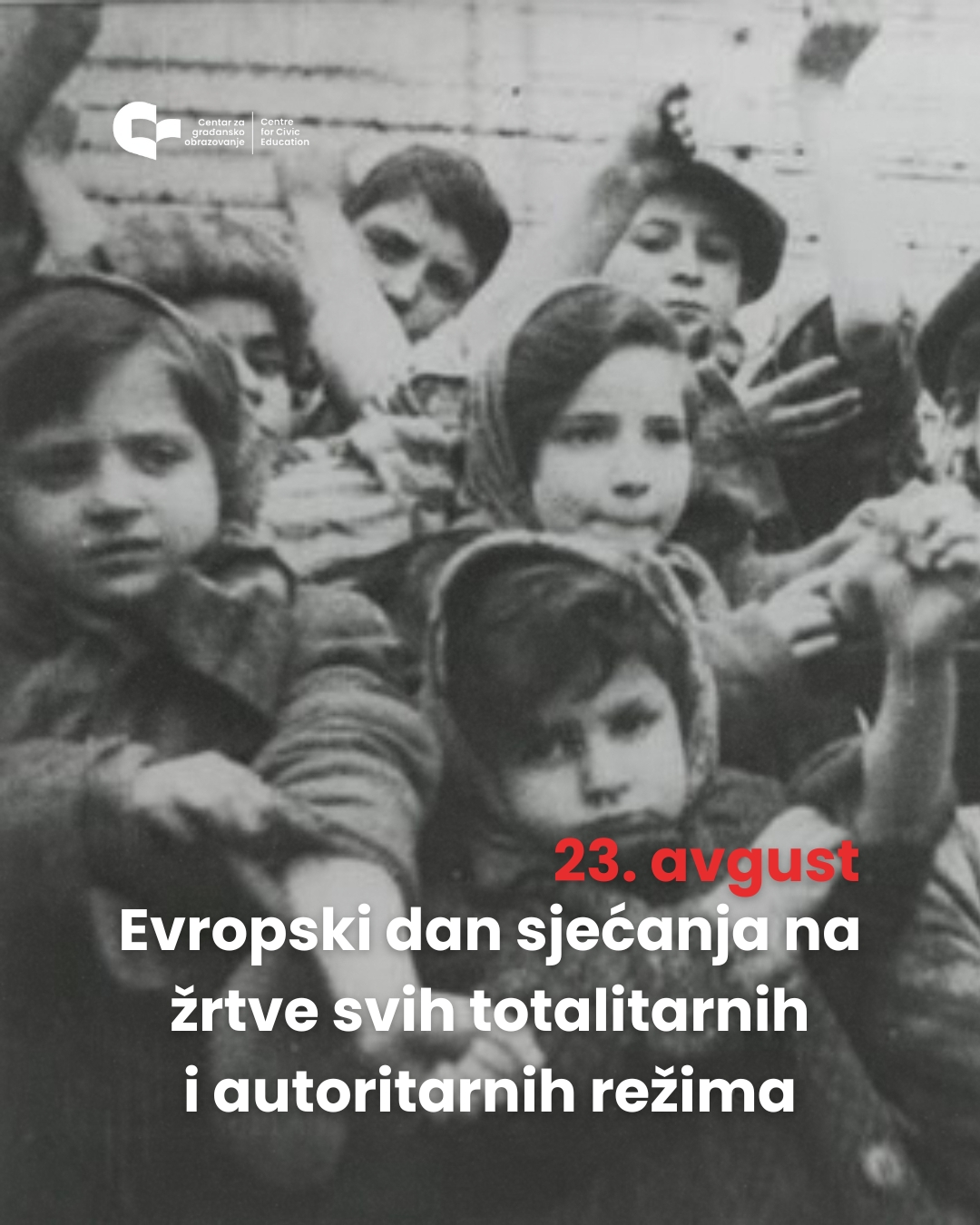On the occasion of the European Day of Remembrance for the Victims of All Totalitarian and Authoritarian Regimes, the Centre for Civic Education (CCE) emphasizes the importance of a lasting and responsible approach to the past as a fundamental precondition for building a democratic, just, and open society in Montenegro.
According to the Virtual Guide to the History of the Goli Otok Camp, developed by the German Friedrich Ebert Stiftung (FES) and the NGO Centre for Dealing with the Past – Documenta from Zagreb, around 13,000 people passed through the Goli Otok camp, which was run by the UDBA (State Security Administration), with 287 of them dying in various circumstances. From 1949 to 1956, there were several smaller camps on Goli Otok – three for men and one for women. In addition to Goli Otok, there were two camps on the island of Grgur (one for women and one for Yugoslav People’s Army officers), as well as prisons in Bileća, Požarevac, Stara Gradiška, a prison on the island of Ugljan, and the Ramski rit camp near the Romanian border. However, Goli Otok was the only site that functioned as a place of internment for Cominform supporters during the period of that conflict. A total of 15,737 people were imprisoned throughout Yugoslavia on charges of supporting Stalin, with estimates suggesting that over 3,500 were from Montenegro. These individuals were subjected to brutal psychological and physical abuse, hunger, disease, and inhumane conditions. Many were detained without any legal process, merely based on suspicion.

The CCE recalls that, although the Parliament of Montenegro adopted the 2006 Resolution of the Parliamentary Assembly of the Council of Europe condemning communist crimes, the state still lacks regular activities marking 23 August. This absence of official commemoration highlights the need for stronger institutional engagement in recognizing and remembering the victims of totalitarian and authoritarian regimes.
Through a resolution of the European Parliament, 23 August has been designated as the Day of Remembrance for the Victims of All Totalitarian and Authoritarian Regimes, reaffirming the EU’s commitment to learning from the past to prevent the recurrence of such crimes
The CCE stresses that this day is a warning and a remembrance of the tragic chapter of political prisoners on Goli Otok, the one that left a deep mark on Montenegro’s history. It is also a reminder of our collective responsibility to ensure these crimes are not forgotten. Remembering them is a call to uphold democracy, human rights, and the rule of law as the foundations of a free society. Equally important is the recognition that these victims must not be manipulated through ideological revisionism, but honored through fact-based remembrance.
Unlike some other countries in the region, Montenegro has yet to legally regulate the issue of compensation for political prisoners and their families. Doing so would help prevent further victimization and stigmatization, and the lack of institutional accountability continues to hinder the process of coming to terms with the past.
Sadly, this date also serves as a reminder that authoritarian regimes still exist in our region, whose actions demonstrate just how fragile democracy can be and how easily its foundations can be undermined.
By the Declaration of the European Parliament on 23 September 2008, 23 August was declared the European Day of Remembrance for the Victims of Stalinism and Nazism, a designation reaffirmed by the European Parliament’s 2009 Resolution on European Conscience and Totalitarianism.
Alma Novalić, Project Assistant
